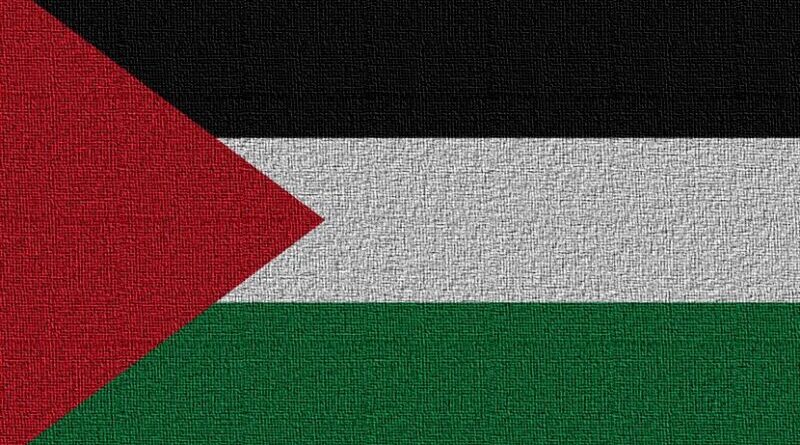Palestine’s Youth Must Break Free From Dual Oppression – OpEd
By Ramzy Baroud
As global voices continue to demand the freedom of 17-year-old Palestinian girl Ahed Tamimi, Israeli authorities have arrested nine additional members of her family. Those who were detained include Ahed’s 15-year-old cousin, Mohammed Tamimi. Israeli troops had shot Mohammed in the head last December, shattering his skull. The teenager, who is awaiting reconstruction surgery, is unlikely to receive proper medical care should he be sent to an Israeli jail.
Ahed’s crime was that, shortly after her cousin was shot, she slapped an Israeli soldier, a video of which went viral. Mohammed was then placed in a medically-induced coma, while the Israeli soldier who shot him has not even received a reprimand.
The Israeli military provided an outrageous explanation of why the Tamimi family members, all hailing from the small village of Nabi Saleh, were detained in a pre-dawn army raid. “The detainees are suspected of involvement in terrorist activities, popular terror and violent disturbances against civilians and security forces,” said a military spokesperson. By “popular terror,” the statement was referring to recurring protests led by the 500 residents of Nabi Saleh against the illegal settlements and apartheid wall. These protests have been a staple of everyday life in the village for nearly 12 years.
Anywhere between 600,000 and 750,000 illegal Jewish settlers live in settlements placed strategically throughout the West Bank and East Jerusalem. They are a glaring violation of international law. Aside from the massive Israeli army build-up in the Occupied Territories, armed settlers have also been a major source of violence against Palestinians.
Ahed and Mohammed Tamimi, along with hundreds of thousands of other Palestinian youths, were born into this violent reality and feel trapped. Their collective imprisonment is not only a result of the perpetual military occupation of their land by Israel, but also the fact that their leadership has operated for many years in a self-centered fashion, orbiting far away from Nabi Saleh and its tiny, struggling but brave population.
Nabi Saleh is, relatively, a short distance northwest of Ramallah, the political base of the Palestinian Authority; but in some ways the two places are a world apart. The PA was formed in 1994 as one of the outcomes of the Oslo Accords, which were initially reached in secret by the Palestinian Liberation Organization and Israel.
Most Palestinians in the Occupied Territories matured politically or were even born after the advent of the PA. They have no other frame of reference but Israel and the Ramallah-based authority. The latter has grown comfortable thanks to its wealth and status and, with time, evolved into a culture of its own. It is no longer a democratic institution, and definitely does not represent all Palestinians.
Thus, Palestinian reality is now shaped by three forces: The domineering Israeli occupation, the subservient and self-centered PA, and the indignant and leaderless Palestinian youth, which is held captive in dual bondage.
This is why Ahed’s slapping of the Israeli soldier resonated throughout Palestine and among Palestinians across the world. It was a symbol of defiance announcing that, despite the two-fold oppression, Palestine’s youth still has the power to articulate an identity; one that is perhaps captive, but nonetheless resilient.
Although Mohammed’s skull is crushed, he continued to speak out as soon as he left hospital. The spirit of the Palestinian people is clearly not broken, and Palestine’s youth is the only way out of the double-walled cage.
Alas, the mission of this generation of young Palestinians is even harder to achieve than previous generations, especially those that led and sustained a six-year-long uprising — the First Intifada of 1987, also known as the “war of the stones.” That generation resurrected the Palestinian cause as it daringly organized its communities, mobilizing all efforts to challenge the Israeli occupation. Thousands were killed and wounded, but an empowered Palestinian nation arose in response.
The Palestinian leadership used the First Intifada to reinvent itself. It exploited the attention young Palestinians had garnered to negotiate Oslo, which ultimately gave some Palestinians special status and denied the rest any rights or freedoms.
The PA and aging President Mahmoud Abbas understands well that, if the youth is to be given the chance to mobilize, another intifada would dismantle his entire leadership, possibly in a matter of days. This is why, no matter how serious the disagreements between Abbas and the Israeli government become, they will always stay united against any possibility of a popular Palestinian revolt led by the youth.
Numerous Palestinians have been arrested, imprisoned or tortured by Palestinian police in the years that followed the formation of the PA. The latter allowed this in the name of “national interest” when, in reality, it was done in the name of Israeli security.
Indeed, Oslo has allowed both Israel and the PA to maintain “security coordination” in the West Bank. This has mostly been used to keep the illegal settlements safe and to prevent Palestinian youths from confronting the Israeli army. Such a practice has meant the PA became the first line of defense against rebelling Palestinians.
While Palestinian officials continue to pay lip service to Ahed Tamimi and thousands of other young Palestinians who continue to endure imprisonment and ill treatment by Israel, in truth Ahed epitomizes the antithesis of everything the Palestinian leadership in Ramallah stands for. She is strong, morally driven and defiant; the PA is a morally bankrupt entity.
Palestinian youths already understand this and it is mostly up to them to free themselves from the confines of military occupation and corruption.
In his seminal book “The Wretched of the Earth,” anti-colonialist author and revolutionary Frantz Fanon wrote: “Each generation must discover its mission, fulfill it or betray it, in relative opacity.” Ahed and Mohammed Tamimi’s generation has already discovered its mission, and it will be they who continue to fight for its fulfillment, their freedom and the freedom of their homeland.

